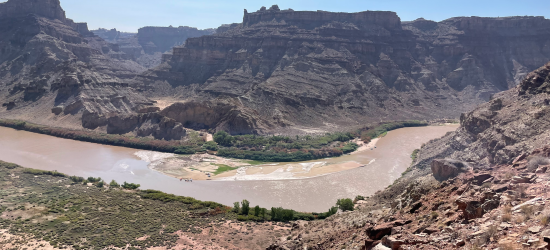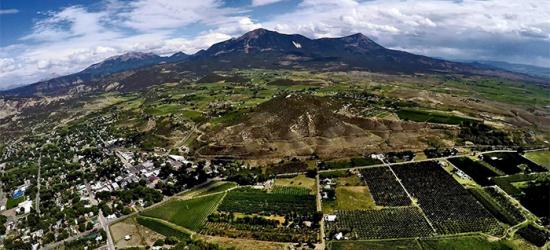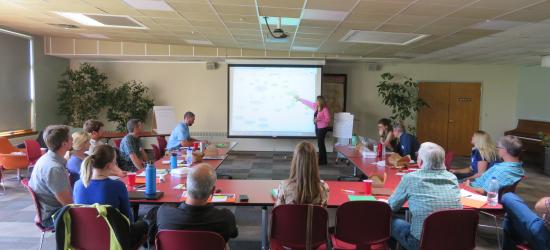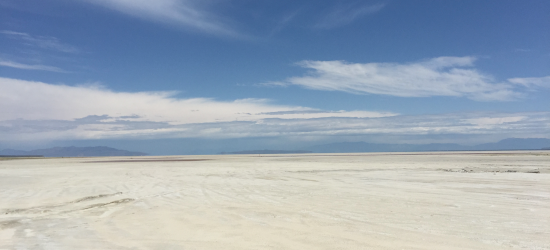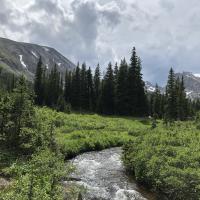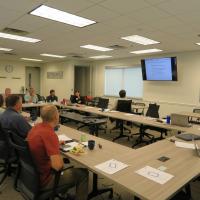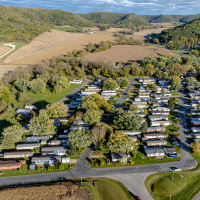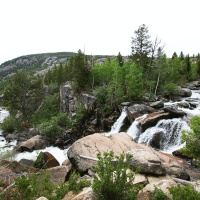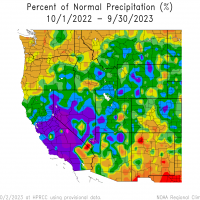Recent Projects
-
Building cross-scale understanding and collaboration to support wildfire-resilient water systems
[Project 6]
Water system managers in the Intermountain West face enormous challenges navigating unpredictable streamflow forecasts, changing snowpack behavior, and the increasingly dangerous threat of wildfire to both water quality and quantity. In this project, we aim to engage directly with water system managers in an iterative project to (1) increase understanding of their perceptions of water system resilience, (2) identify key components of regional water system resilience across a range of scales from small rural systems to larger urban systems, and (3) convene cross-scale water manager conversations to support peer learning and identify opportunities to collaboratively build equitable and just regional water system resilience. This project stems directly from conversations with the US Forest Service, Northern Water, and Denver Water.- Colorado
- Building Resilient Water Systems
-
Building understanding for water system resilience to changing streamflows
[Project 3]
In this project, we will engage with water providers, tribal representatives, agricultural and other water users, ecological interests, and recreational groups about future snowpack and streamflow conditions, increasing understanding of how they view water system resilience to compound hazards. This continued engagement is essential both to disseminate new research findings and to understand evolving information and planning landscapes.- Colorado
- Utah
- Wyoming
- Building Resilient Water Systems
-
Building Climate Resilience Within Mobile Home Park Communities
In Spring 2024, Western Water Assessment launched a new project focusing on understanding climate risks and building climate resilience within mobile home park communities. Mobile home park residents face unique and disproportionate exposure to climate related hazards, including heat, fires, and floods. Further, mobile home residents often are left out of many climate and disaster related assistance programs, due to the unique housing structure of mobile home parks. Addressing the needs of mobile home park communities is key to building climate resilience and addressing climate justice needs.- Colorado
-
Adapting to Climate Change in Wyoming
Wyoming communities face increasing climate-related risks including wildfire, drought, flooding, and heat waves. This funding competition provided a rare and important opportunity to directly support adaptation and build climate resilience in underserved communities in the state. Applicants provided brief, five-page descriptions of their projects. Proposals were ranked based on their demonstrated community interest, resources and networks in place to support the project, realistic budget and timeline, appropriate and sufficient partners, strong connection to their communities, clarity about how resilience or adaptation would be built through the project, their plan for communicating with WWA and leveraging of WWA resources, their plan for and potential impact of external outreach, and the quality, novelty, and innovation of their ideas. We particularly encouraged proposals from entities and communities who have been historically underserved including Indigenous and small rural communities.- Wyoming
- Building Resilient Communities
-
Intermountain West Climate Dashboard
The Intermountain West Climate Dashboard, which debuted in October 2012, is our most popular resource that provides information and graphics about current and forecasted regional weather, climate, and water information. Feedback from WWA stakeholders through multiple program evaluations and analyses of website traffic indicate that the dashboard is a very useful ‘one-stop shop’ for up-to-date climate and water information for WWA’s three-state region.- Colorado
- Utah
- Wyoming
- Climate and Hydrology in the Colorado River Basin
Recent Publications
Macpherson, Elizabeth, Rosa I. Cuppari, Aurora Kagawa‐Viviani, Holly Brause, William A. Brewer, William E. Grant, Nicole Herman‐Mercer, et al. 2024. “Setting a Pluralist Agenda for Water Governance: Why Power and Scale Matter.” WIREs Water, May, e1734. https://doi.org/10.1002/wat2.1734
Clifford, K. R., J. Henderson, Z. McAlear, L. Dilling, B. Duncan, S. Ehert, S. Arens, R. Page, and U. Rick. 2023. “The ‘Nuts and Bolts’ of Doing Coproduction: Exploring Implementation Decisions in Climate Adaptation Research with Stakeholders.” Bulletin of the American Meteorological Society 104 (4): E872–83. https://doi.org/10.1175/BAMS-D-21-0292.1
Yao, Fangfang, Ben Livneh, Balaji Rajagopalan, Jida Wang, Jean-François Crétaux, Yoshihide Wada, and Muriel Berge-Nguyen. 2023. “Satellites Reveal Widespread Decline in Global Lake Water Storage.” Science 380 (6646): 743–49. https://doi.org/10.1126/science.abo2812
Dilling, Lisa, Meaghan E. Daly, William R. Travis, Andrea J. Ray, and Olga V. Wilhelmi. 2023. “The Role of Adaptive Capacity in Incremental and Transformative Adaptation in Three Large U.S. Urban Water Systems.” Global Environmental Change 79 (March): 102649. https://doi.org/10.1016/j.gloenvcha.2023.102649
Barnhart, Katherine R., Veronica Y. Romero, and Katherine R. Clifford. 2023. “User Needs Assessment for Postfire Debris-Flow Inundation Hazard Products.” Report 2023–1025. Open-File Report. Reston, VA. USGS Publications Warehouse. https://doi.org/10.3133/ofr20231025
